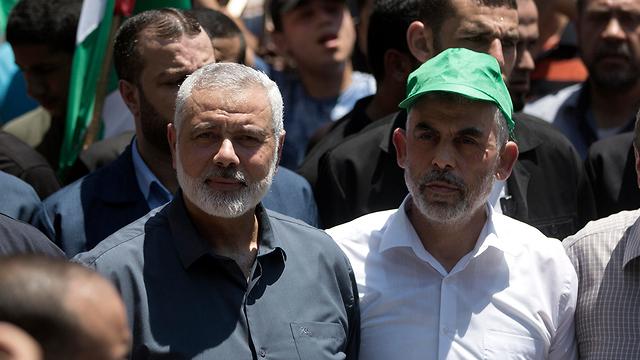Recent reports from reputable sources such as Bloomberg and The Wall Street Journal have shed light on a concerning development in the ongoing war in Gaza. It has come to the forefront that Hamas sent approximately 500 of its operatives for combat training on Iranian soil; training conducted by a special force of the Iranian Revolutionary Guards.
While these revelations are indeed disconcerting, it's crucial to note that there is no concrete evidence suggesting that this training was specifically intended for the terrorist attack that occurred in Israel on October 7. The training program raises questions about Iran's involvement in supporting militant groups in the region and the broader implications for regional stability.
Tonight #Iran’s regime’s foreign minister has arrived in New York, staying @Millennium1UN. WSJ reported he participated in planning meetings for the #Hamas attack on #Israel. He should have never been granted a visa. The U.S. refused a visa to his predecessor Javad Zarif in 2020.… pic.twitter.com/RIKmAyaNKL
— Jason Brodsky (@JasonMBrodsky) October 25, 2023
The backdrop to this revelation is the long-standing contention surrounding Iran's support for various extremist groups in the Middle East. The United States has consistently accused Iran of providing training and resources to terrorists operating not only in its own territory but also in neighboring countries. However, American officials have made it clear that, despite these allegations, they have no direct indication of mass training sessions organized by Iran for Hamas and Jihad terrorists in preparation for the October 7 attack.
The Wall Street Journal adds another layer to this complex narrative by reporting that Israel Defense Forces (IDF) spokesman Brigadier General Daniel Hagari has made a strong statement regarding Iran's involvement in the Hamas attack. He stated, "Before the war, Iran directly assisted Hamas with money, training, weapons, and technological know-how, and even now Iran is assisting Hamas with intelligence." This assertion underscores the multifaceted nature of Iranian support for militant groups operating against Israel.
Furthermore, The Wall Street Journal mentions senior Hamas and Hezbollah officials claiming that the Quds Force, an elite unit of the Iranian Revolutionary Guards, played a role in planning and approving the execution of the attack. Allegedly, a crucial meeting took place in Beirut on October 2, involving leaders from both Hamas and Hezbollah, where the attack's details were finalized. However, senior American officials have challenged these reports, asserting that intelligence indicates Iran's leadership was taken by surprise by the Hamas attack.
Biden’s pick to be the Ambassador to Israel, Jack Lew orchestrated and implemented the Iran nuclear deal.
— Senator Ted Cruz (@SenTedCruz) October 25, 2023
The billions from that deal helped fund the Hamas death squads that murdered of Israelis and Americans.
It would be nice if we had an ambassador that would support Israel. pic.twitter.com/nj70V6zNsd
Reuters has also reported on Iranian involvement in the continuation of hostilities. Citing three Western security sources, the report suggests that the Iranian leadership decided to use Hezbollah to carry out attacks against Israel in the north, while Iraqi Shia militias, supported by Iran, engaged in low-profile attacks against American targets in the region. The Pentagon has confirmed ten such attacks against American targets in Iraq and Syria since October 7. On a diplomatic front, the Iranian embassy in the United Nations declared on October 15 that Tehran would refrain from intervening in the conflict as long as Israel did not attempt to attack Iran directly.


